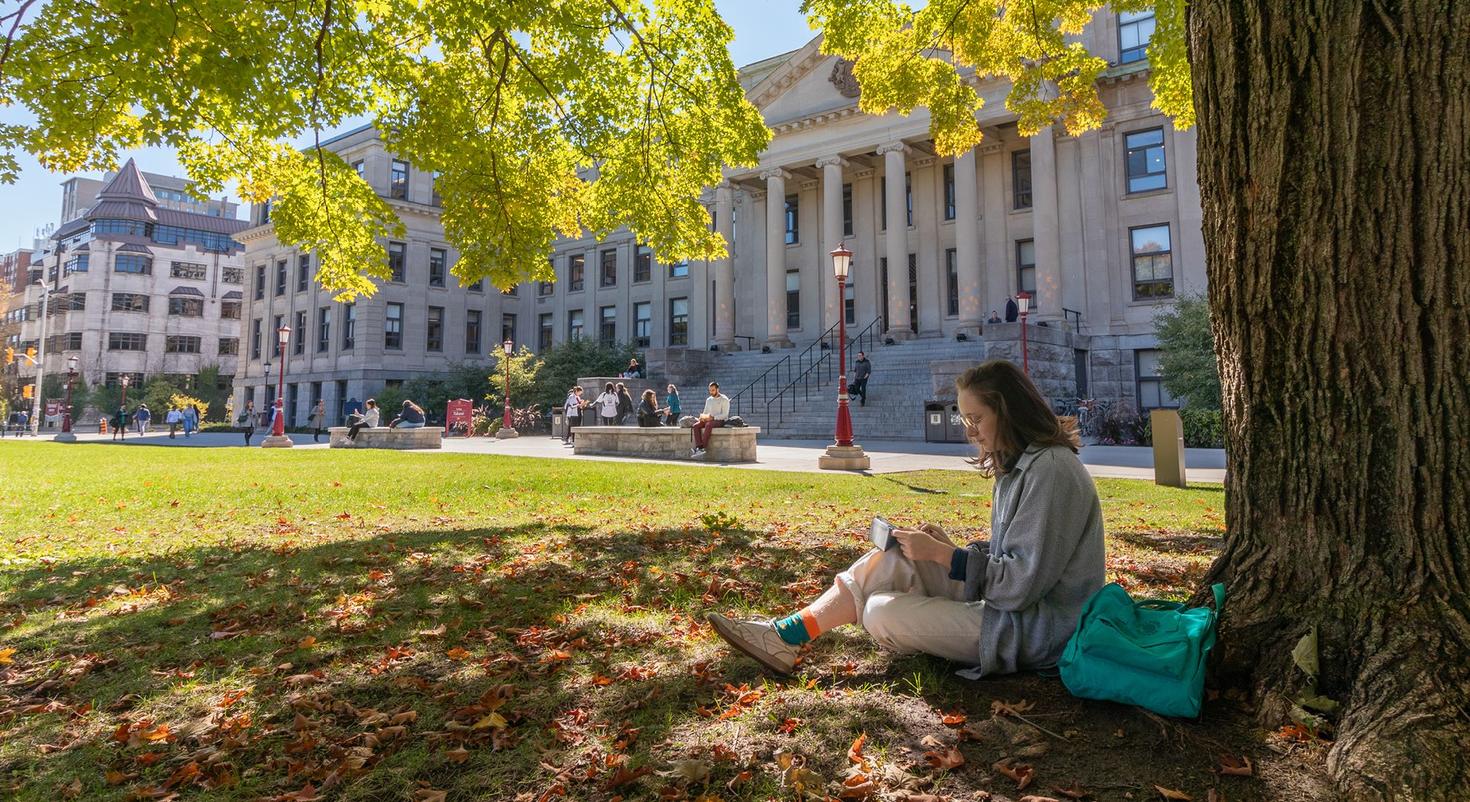Whether you’re doing a study term as a co-op student, retaking a course or trying to lighten your schedule for next term, spring-summer classes are a smart move—but they can be a major focus challenge.
(Meanwhile, if you’re a master’s or PhD student, summer means no rest for the wicked...but it doesn’t have to be all work, no play.)
Here are 11 evidence-based tips and resources to help you stay on track when all you want to do is go outside.
1. Time-block your freedom
Build your schedule around the weather. Wake up early and block off your most productive hours (usually morning) for school—and give yourself guilt-free outside time later. Knowing you’ve got a patio hangout booked at 4 p.m. makes that 10 a.m. reading way more bearable. Put in extra study time when it’s raining!
Pro tip: Time-blocking reduces distractions and decision fatigue, and boosts focus. The Faculty of Science’s tips on how to make a study schedule are useful for everyone.
2. Use the ‘90/20’ rule, not just pomodoro
Pomodoro, the study technique in which you focus for 25 minutes and then take a five-minute break, is cool, but the “90/20” rule—90 minutes of deep focus, 20 minute break—can help you get into the flow without burning out. Use your break to soak up the sun (iced coffee, backyard chill time or a quick walk).
Pro tip: Did you know our brains can sustain deep focus for around 90 minutes before needing rest?
3. Create a summer study zone
Set up your study space near a window or even on a balcony—somewhere bright and breezy. Make it feel like summer so you’re not totally FOMO-ing. Bonus: natural light improves alertness and mood.
Pro tips: Take your laptop or books for a walk. Try studying outside. The Tabaret Lawn is a serene spot on campus, but you can also explore nearby parks. Research suggests that studying in different spots can improve your recall.
4. Treat study like an extra summer job
Approach classes and study time like a part-time job. You show up, do the work and then you’re off the clock. This mindset shift builds structure and reduces the feeling that you “should be doing more.”
Pro tip: For extra focus if you’re taking online classes, why not come to campus for a day or two a month “at the office.” Lock in at one of uOttawa’s best study spots. Even three or four focused hours a day can be more than enough when you’re intentional.
5. Batch the boring stuff
Group similar tasks together—like watching all your lecture vids or writing all your forum posts—so you don’t waste time switching mental gears. Then knock them out while sipping lemonade or enjoying a latte.
Pro tip: Task batching improves efficiency and reduces cognitive load.
6. Limit doomscrolling with app blockers
7. Use peer pressure (the good kind)
Studying solo in the summer is rough. Create or join a virtual study group (check your faculty for details). You can also book library meetups or hop on Zoom with a friend. When other people are working, you’ll be more likely to stay on task. Testing your knowledge and bouncing ideas off others who are studying the same subject can really help with recall and memorization
Pro tip: Social studying = accountability + less isolation.
8. Put your ‘why’ where you can see it
Whether you’re retaking a course or hustling to graduate early, remind yourself why you signed up for spring-summer classes. Put it on a sticky note. Use it as your lock screen. Your future self (circa fall 2025 and beyond) will thank you.
🎓 Pro tip: Motivation tends to fade—visual reminders help bring it back.
9. Make your breaks intentional (and outdoorsy)
Instead of scrolling between study sessions, use breaks to recharge in the sun. Go for a walk, stretch on the lawn or hit the canal for a brain break. You’ll return more refreshed than if you binge on TikTok.
🌞 Pro tip: Yes, fresh air really does help your brain function better.
10. Schedule regular exercise in your routine
Your Spring-Summer term fees include access to uOttawa’s on-campus fitness facilities, including the Olympic-sized swimming pool. Plus, with fewer students around, they’re not as busy, allowing you to complete your circuit training faster.
Pro tip: Regular exercise will help you stay focused on your studies and feeling great. Check the recreation facility hours of operation and the swimming pool schedule.
11. Reward yourself often
Finished a module? Celebrate with a popsicle. Aced a quiz? Go read a book outside. Finished your week early? That’s a long weekend! Build in mini rewards to stay positive and on track.
Pro tip: Science says rewards boost dopamine, which makes you more likely to stay motivated.
You’ve got summer school superpowers
Staying focused during online courses in summer isn’t easy—but it is doable. The key is structure, flexibility and giving yourself grace (and sun). Stay cool! You’re putting in the work now to make “future you” proud.
